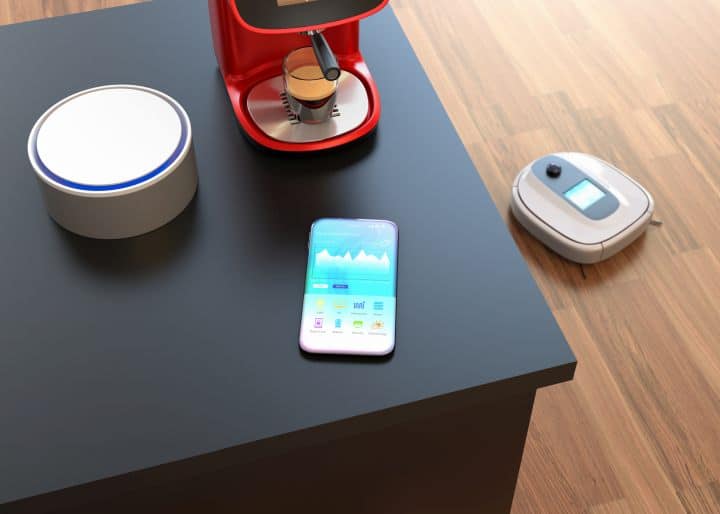Technology has emerged into providing information by voice, instead of using a search engine by a keyboard.
Both Alexa and Google Home do just this, as they are programmed with AI to recognize voice inquires and respond to them by scouting the information on the internet. But what are the pros and cons to each of them and why should the elderly buy one over the other?
Google Home is a digital assistant that is generally easier to use. Thus, more likely to result in a helpful and accurate response.
In this article, we will dive into the advantages and disadvantages of each device. Keep reading to justify how Google Home will be the most beneficial for the elderly in comparison to Alexa.
Contents
Alexa
Alexa is a virtual assistant AI piece of technology created by Amazon. It was first used in Amazon Echo and has been programmed into many more products (i.e, Sonos One, Amazon Echo dot, and more)
Pros
- Integration ability. Designed with skills to connect to other services and apps.
- Storing ability. You can play a speech-text session back for quick information and save time.
- Workplace suitability. Since Alexa can set reminders, call people on demand, obtaining answers to questions, and much more. lawyers can easily use it for fast information or action in job duties.
- Easy to use. A study showed 50-75-year old’s reported Alexa is easy to use with camera video calls and had positive experiences.
Cons
- Too many features. A study showed that in academic settings, people interacted with Alexa gadgets mostly in terms of questions about Alexa’s features and opinions, or may be some dumb or basic questions.
- Not a necessity. Some participants found it socially awkward to interact with the device. Others were just not aware of it.
You may also like Best Cell Phones for Seniors with Dementia
Google Home
Google Home is equipped with Google assistant AI which provides information on voice command. Google has a line of smart speakers created by Google under the category “Google nest”
Pros
- Research. It can access the power of Google search directly, whereas Alexa skill depends heavily on Wikipedia that isn’t reliable in terms of credibility.
- Portable. Small enough to place on a wall adapter to an outlet – many similarities have been noted by comparing it to an air freshener.
- Tracking history. If you use any of Google’s services, it’s beneficial how Google knows a lot about you from your inquiries including speech.
- Access government information. Ask a question into Google Home with a simplified, answer by delivering information as clear as possible.
Cons
- Increase laziness. People may like using the effectiveness of the Google Home to do things for them (researching, doing work-related tasks) and can increase dependence on a machine.
- Privacy anxiety. Since google home is a smart speaker, it tracks conversations within the user and machine. This can cause anxiety to people who want more privacy.
You may also like Apps To Check On Elderly Parents
Features Face to Face
Price
The Google Home line equipped with Google Assistant ranges from $49 to $259 with upgraded features at a higher price. Similar to the Alexa devices, processes range from around $49.99 to $249.99.
The All-new Echo Dot (4th Gen, 2020) smart speaker with Alexa is only $49.99
The Google Home Hub, one of Google’s smart speakers with Google Assistant AI is on sale for $79.99. originally $99.99.
Although the Alexa device is cheaper, you may want to weigh the pros and cons to decide if spending more on the Google Home device is worth it.
Audio
Both speakers sound similar in quality when compared to one another. However, the Amazon Echo (Alexa) is better because it has a slightly louder external speaker. It also has a mute button instead of a switch.
You may also like Best Android Launcher For Elderly
Smart Displays
Google’s displays are twice as fast as Amazon Alexa’s device screens. Choose Google home for faster navigation or setting up certain settings. Google Home’s screen is also larger.
In addition, Google’s Nest hub with Google Assistant has a camera to recognize your face and display content so every person can be placed directly in the frame.
Voice
Both can recognize a person’s voice and give a personalized answer. This feature is from their AI research and speech ability. However, Amazon has many more devices with Alexa built-in such as the Amazon Echo line.
In terms of interpersonal interactions, Alexa is more suited to those who want emotional connection on top of information that the assistant gives. It can empathize but is a bot!
Routines
Google does a better job at routines. This is because it is equipped with the ability to get the Google Assistant to perform several actions at once. For example, Google Home can change the lights for movie nights with voice commands.
In comparison, Alexa only allows one voice command for one routine. Therefore, Google Home is better in efficiency through voice commands and its desired action program.
You may also like Efficient Ways to Set Up Tablet for Elderly
Other
IPAs (intelligent voice AI assistants) including both Alexa and Google Home are equipped for weather checks, quick references, setting an alarm/timer, and other voice requests.
However, Alexa is superior to Google Home in terms of other features, because it has many more functions than listed above.
Nonetheless, this can confuse elderly people if they don’t need extra functions such as sports scores or ordering prime products from Amazon.
In this video, it explains more differences between each feature, and why one is more superior than the other.
Stand Out Features
Google Home
- Environmental control. Environmental control units (ECU) allow independence for those with a disability either physically or mentally and reduce demand and burden on daily tasks.
- Picks a song. Google Home can pick any song you tell it to play. Or, you can connect it to Bluetooth and choose a song (like Alexa) that way.
- Pre-set routines. Triggers a morning or bedtime routine, such as putting your phone on silent or putting an alarm on for you. Better yet, it can do more than one action at once for better efficiency and speed.
Alexa
- Agent sociability. Amazon Alexa enables users to engage in cognitive rewiring exercises. A study showed it improved the sense of interpersonal skills, which lowers public speaking anxiety.
- Confidant. Can confess mental health issues and it can empathize with you. Can even tell Alexa about abuse and it will provide sympathy like a friend would.
- Social interaction. Provides a human-like interaction with the device to engage and meet social needs to an extent.
You may also like Best Free Game Apps For Seniors
In Conclusion
Use Alexa if:
- You (or elderly persons) want the loudest speaker
- You want a confidant for your problems
- You want to connect it to other Alexa products
- You want the cheapest voice assistant device
Use Google Home if:
- You (or elderly persons) want a large screen
- You like quick Google related information
- You want routines on your phone done for you
- ·You want to voice command a song
In conclusion, these two products have great features standing on their own and can serve many needs of the elderly. However, the elderly may want certain features better suited for video calling, or for voice command results that are mentioned above.
In our opinion, the Google Home is best for elderly use because it’s more efficient through the fast touch screen when setting up.
The bottom line is that Google Home is easier to use- in terms of quick, Google search results delivered through question and answer.
By the way, we also wrote a separate article on Facebook Portal vs Echo Show for elderly. Read more of our blogs for more senior-friendly technology for communication and safety purposes.


